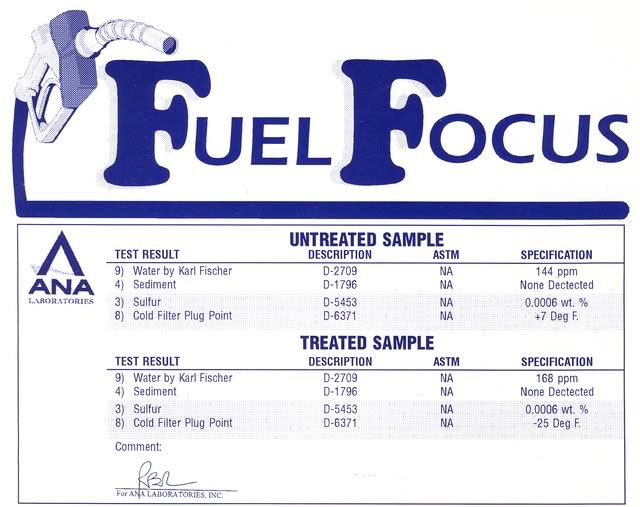Welcome to the forum.
Are you going to act on everything someone tells you? With this being your first diesel, you are understandably behind the learning curve but if you act upon every bit of advice you get without understanding what you are doing, you will eventually run into trouble.
All of us were in your shoes at some point--no one is born with the necessary knowledge to operate diesel engines. However, this being the great free enterprise country that it is, that lack of knowledge on the part of the owner of a piece of equipment opens up a vast potential for 'entrepreneurs' to capitalize on that ignorance. It goes like this:
Step one: Convince the customer that there is a problem or deficiency that the manufacturers of fuel/machinery/etc. are either unaware of or are ignoring, much to the detriment of the owner (you).
Step two: Provide a product that claims to cure said problem, or prevent it's occurrance in the first place (i.e., the cheap insurance mentality)
Step three: Rely heavily on the end user not educating himself as to whether the claims of there being a problem are really true or not.
Usually the end user has no way of determining if adding additives to the fuel provides any benefit. Most reach the conclusion that because a.)I used additive X, and b.)I didn't have any trouble, that the former was the cause of the latter, which is a false conclusion. You can add all kinds of junk, such as used motor oil, gasoline, paint thinner, paint stripper, and lighter fluid to your diesel fuel and not have any trouble--a diesel engine is remarkably cooperative in what it will digest without getting heartburn.
FWIW, some of those ingredients, along with kerosene, are the prime constituents of diesel fuel additives, although listed on the can under different names. You might also be interested in knowing that those companies who burn the most diesel fuel such as big truck fleets, don't bother using additives.
